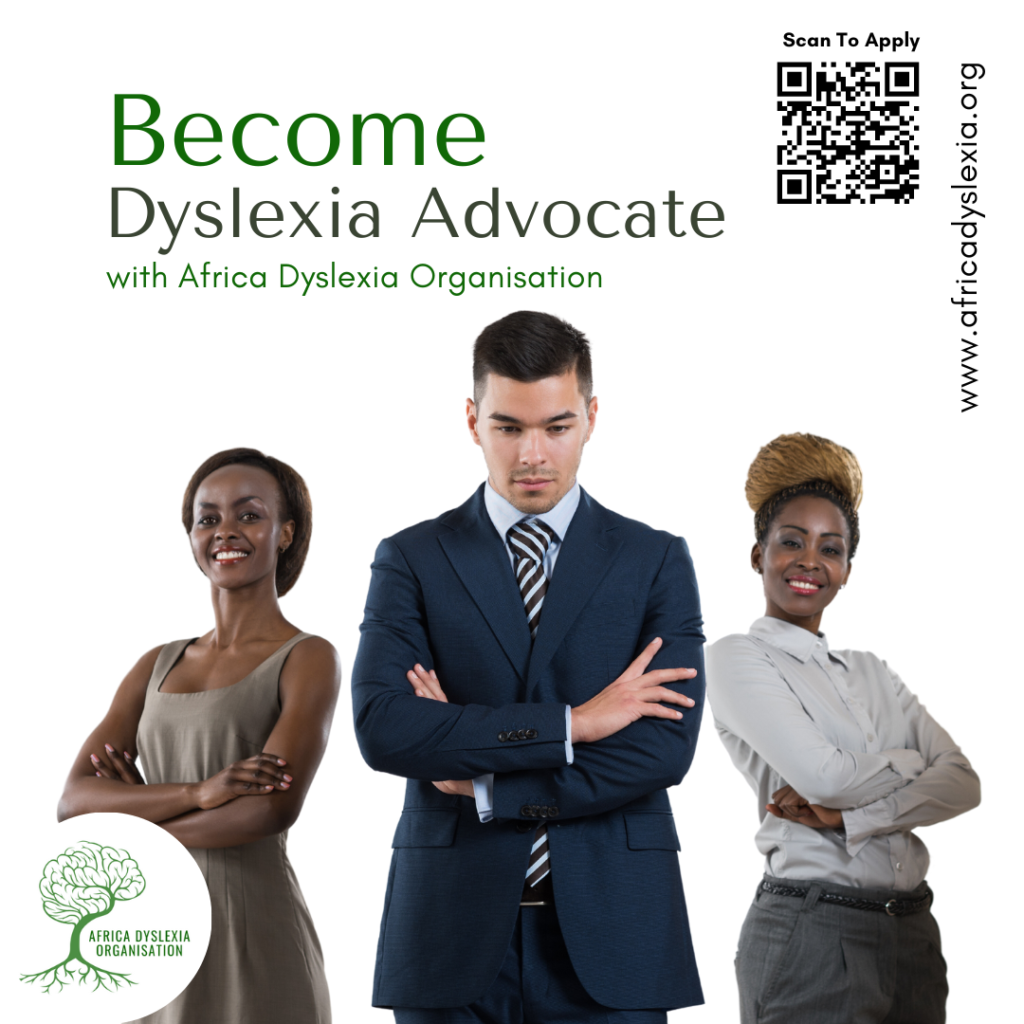
This event has already passed. Please check our homepage for upcoming events.
Dyslexia Advocate Fellowship Program
The Africa Dyslexia Advocate Fellowship’s mission is to amplify awareness and advocacy about dyslexia and related learning differences across Africa. We aim to equip educators and individuals from other fields of engagements with the tools to support students with diverse learning needs, drive impactful research on dyslexia, engage with educational agencies, foster a knowledgeable and proactive community, and empower individuals to champion the cause of dyslexia in Africa.
Our fellowship engages impact makers to be grassroots advocates in their communities.
To further our mission, we are excited to open application the Dyslexia Advocate Fellowship Program 2025 cohort.
In this second cohort, we have set our sights on:
- Recruiting two dedicated individuals from each of the 54 African countries.
- Cultivating a team of advocates to spread awareness and garner support for individuals with dyslexia across Africa.
Advocates will have the opportunity to:
- Educate their communities about dyslexia.
- Promote inclusive education.
- Champion accommodations for those with this learning difference.
The program details are as follows:
- Training: A comprehensive two-months module designed to equip fellows with vital advocacy skills.
- Fellowship Duration: Two years (After 2 Months training and fulfilling all requirements, you graduate as Dyslexia Advocate and you are ready to start your impact journey with Africa Dyslexia Organisation for at least 2 years with a minimum two projects a year in your community)
Our belief in diversity drives us. Advocates from various backgrounds, especially professionals from sectors such as:
- Journalism
- Education
- Health care
- Public policy
- Business
- Social Enterprise
However, if you’re from a different sector but are passionately aligned with our mission, we encourage you to apply
The fellowship provides the unique opportunity to:
- Learn from dyslexia experts.
- Network with fellow advocates across the continent.
- Develop skills in communication, advocacy, and community engagement.
Benefits of the Program: While the African Dyslexia Advocate Program does not offer monetary compensation, the benefits are manifold:
- A two-year, dynamic training program.
- Representing the Africa Dyslexia Organisation in your country.
- Elevating dyslexia awareness across Africa.
- Gaining professional experience and honing new skills.
- Being part of a dedicated team working towards inclusivity.
Advocate Responsibilities:
Following the comprehensive Two Months training, as a Dyslexia Advocate, you will be entrusted with the following responsibilities:
Awareness Campaigns:
- Organize and lead awareness campaigns in local schools, community centers, and other public arenas.
- Use multimedia platforms to spread the message and understanding about dyslexia.
Liaise with Educational Agencies:
- Engage with educational agencies in your country, presenting the latest research and advocating for curriculum changes that benefit students with dyslexia.
- Secure resources, such as reading materials and software, to assist educators in helping students with diverse learning needs.
Community Engagement:
- Organize support groups for individuals with dyslexia and their families.
- Foster a sense of community and provide a platform for sharing experiences and strategies.
Continuous Learning:
- Stay updated with the latest research, tools, and strategies related to dyslexia.
- Attend refresher training sessions organized by the Africa Dyslexia Organization to ensure consistent and updated advocacy.
Collaborate with Media Professionals:
- Engage with journalists, bloggers, and influencers to spotlight success stories, challenges, and breakthroughs in the world of dyslexia.
Feedback and Reporting: - Periodically report back to the Africa Dyslexia Organization, sharing progress, challenges faced, and success stories.
- Assist in gathering data for ongoing research initiatives.
Mentoring:
- As a senior advocate, mentor new fellows, sharing experiences and best practices to ensure a consistent approach in advocacy.
To be considered for the program, applicants must fulfill the following requirements:
- Be committed to the mission of the Africa Dyslexia Organisation
- Be between the ages of 18-55
- Have acquired a minimum of a post-secondary certified training and qualifications.
- Be available to dedicate a minimum of 2 years for the program
- Have a verifiable minimum of one year of volunteer and one year of work experience.
An ideal candidate is one who:
- Is committed to the mission and vision of the Africa Dyslexia Organisation.
- Is flexible, independent, and has sense of effort and sense of humor.
- Self-motivated and has interest in volunteer work.
- Has absorptive capacity to learning on the project.
- Appreciates and respects other languages, cultures, religious and social norms.
- Has a great deal of social networking skills.
By taking on these responsibilities, you will be instrumental in achieving our shared vision: creating an inclusive and understanding society for all students with learning differences.
Application Process:
The ideal candidate resonates with our organizational missions, showcases flexibility, exudes self-motivation, and demonstrates robust networking skills.
Passionate about being the change catalyst for dyslexia awareness? Apply by filling out application using the apply now button below or above.
In addition to your CV, ensure your application articulates:
- Your motivation for joining our fellowship.
- Your vision of utilizing the fellowship’s learnings for community impact.
- Previous advocacy experiences.
- A team collaboration experience detailing your role and learnings.
- Your strategy to gauge the impact as an Africa Dyslexia Advocate.
- Fulfil all application requirements including 2 Minutes video submission of vision and inspiration.
Thank you for your unwavering support of the Africa Dyslexia Organisation. Together, we can revolutionize dyslexia awareness and understanding across Africa.
Application Deadline: August 31st, 2024

